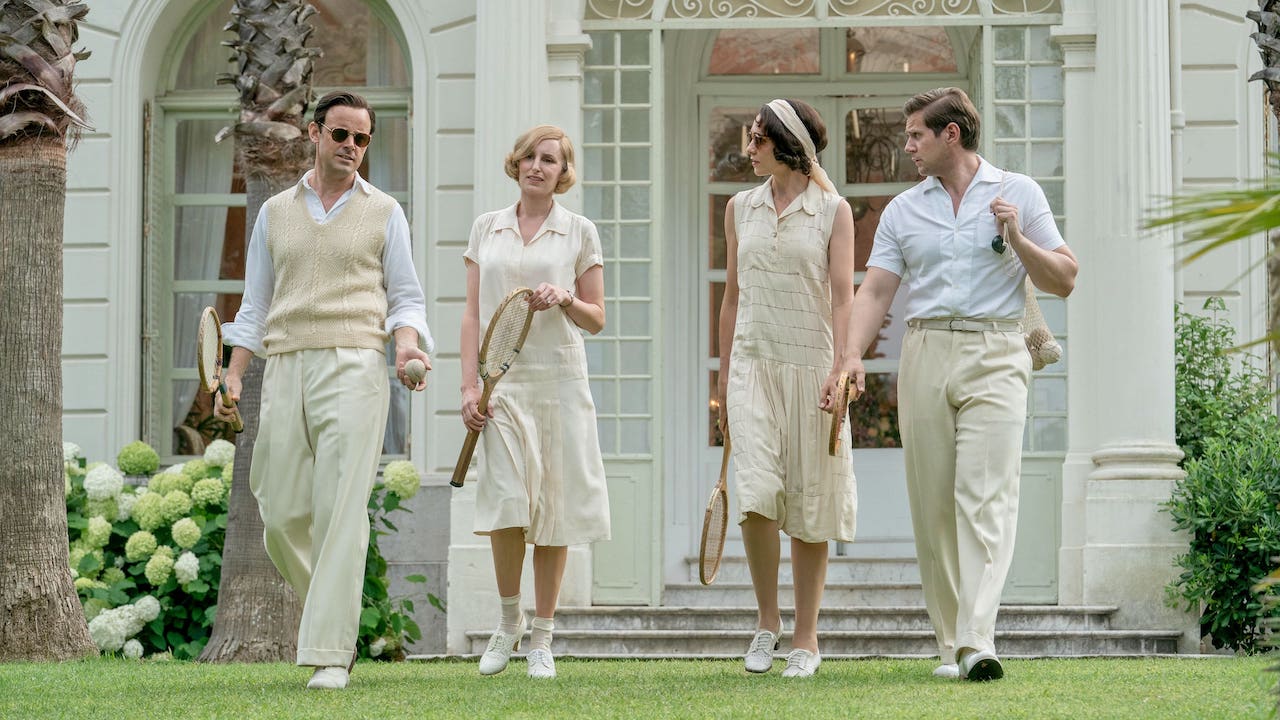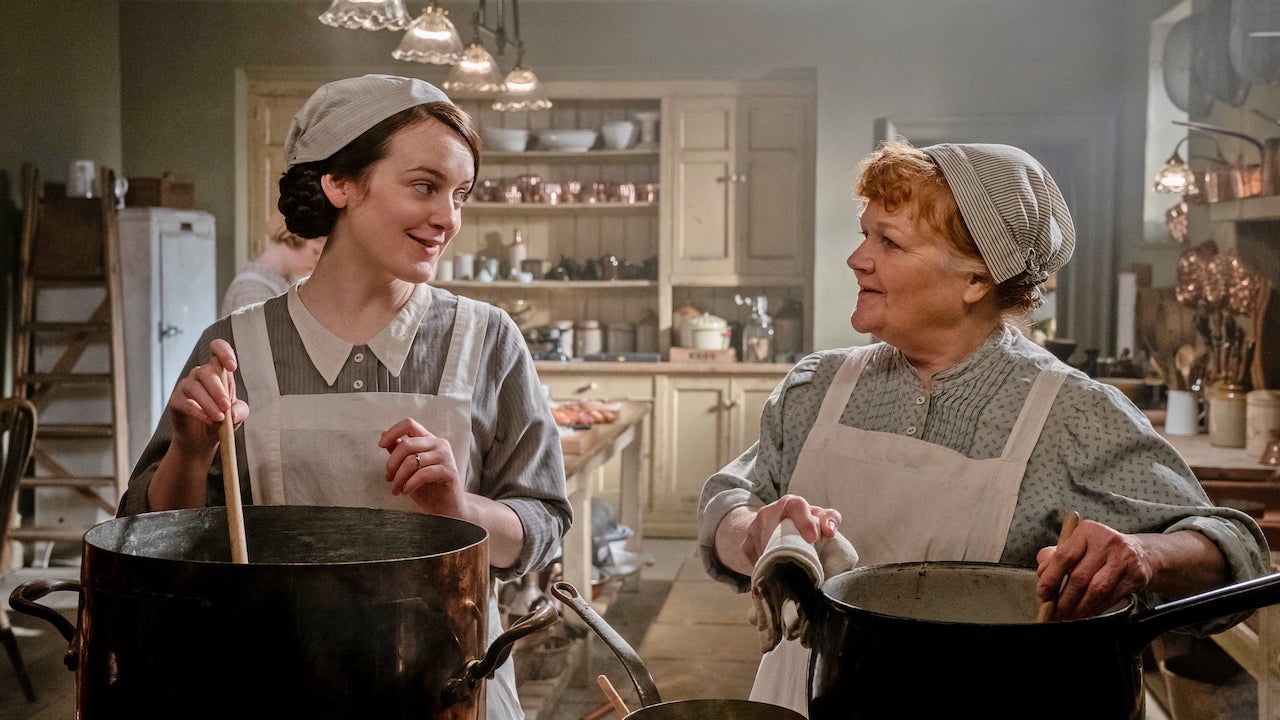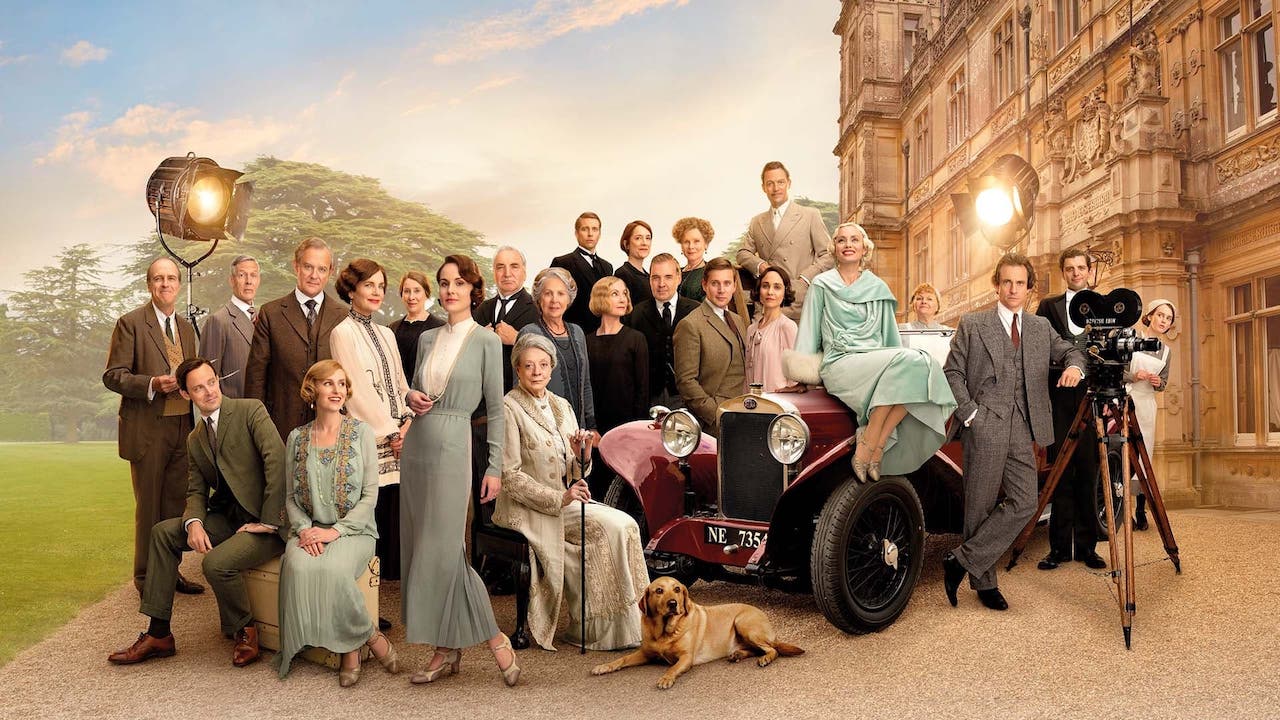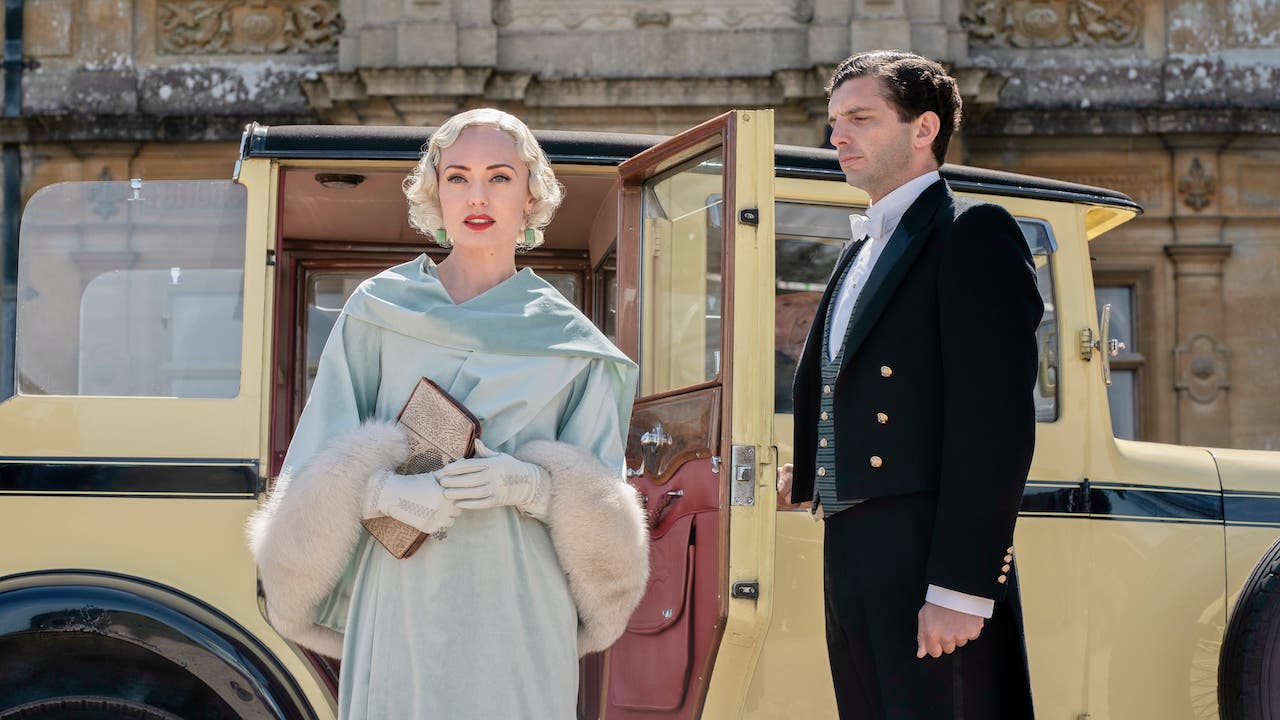Downton Abbey struggles into A New Era with a second film of light fanservice

For critic Lillian Crawford, Downton Abbey: A New Era asserts its franchise as a thing of the past, with too many new characters and a stuffy screenplay. Fans should enjoy themselves, though.
Downton Abbey: A New Era
The subtitle of the new Downton Abbey movie is a misnomer. Having debuted on ITV back in 2010, Julian Fellowes’s magnum opus managed six seasons and a feature-length “cinematic event” before supposedly closing its doors for good. The promise of “A New Era” is enticing, a change of direction away from the archaic tweeness and patriotic nostalgia.
Alack, old habits die hard.
If you aren’t already a fan of the show, you’re not going to be converted by Downton Abbey: A New Era. But if you’ve stuck around from the beginning, and enjoy the gentle escapism of the mainstream costume drama, then it’s bound to please. Almost all of the regular cast return—with the notable absence of Matthew Goode as Mary Crawley’s husband, Henry Talbor—as do the lavish rooms of Highclere Castle in Yorkshire.
There’s something reassuring about this familiarity, especially coming out of the COVID-19 pandemic. However, the hallmarks of lockdown are writ large across this film. It’s stagier than ever before, with actors clearly socially distancing from each other during all exchanges. There’s a stronger sense of emotional distance than in previous iterations, leading to some comically stunted set pieces both up and down stairs.
What is immediately striking is how cinematographer Andrew Dunn has been tasked with masking the film’s production challenges. Right from the off, the sweeping camera scarcely stops moving, perhaps to make the film more “cinematic” than its small-screen counterpart, but more to add some dynamism to the wooden dialogue and blocking.

The frenzy of the drones and dollies is mirrored in Adam Recht’s editing, using a dizzying number of cuts to rush through an extraordinary number of expository discussions. Thankfully proceedings eventually slow down once the parallel plots are underway—an inherited villa in sunny southern France, and a Hollywood picture being shot on location at Downton.
Beyond struggling to keep proceedings in motion, the parallel plots seem to have been necessitated by a duality of lockdown and budgetary restraints. While it might be possible to juggle the sprawling cast of characters across a ten-episode series, affording sufficient attention to each while introducing new faces is exhausting. Like the modern superhero franchise, simply following the plot demands a great power of recall on the part of the casual viewer.

Where Downton Abbey: A New Era thrives is as a “Keeping Up with the Granthams” narrative. Many of the loose ends from the series were tied up in the previous film, and most characters are happily partnered now. The remaining singletons swiftly have their matches made by Fellowes, including the endlessly tragic Thomas Barrow who is finally allowed a semblance of happiness as the series’s only out queer character.
Among the infinite plotlines, Fellowes manages to sprinkle the screenplay with plenty of light humour and innuendo (“You’ll have to help me break in the new butler, Carson.”) Maggie Smith as the Dowager Countess, Violet, remains on formidable form, and while her imminent death looms over the film, her wisecracks come thick and fast right through to the end.

Of the newcomers, it’s the Hollywood film crew at Downton who steal the show. Led by a deviously charming Hugh Dancy as director Jack Barber, a coterie of silent film stars including actors played by Dominic West and Laura Haddock navigate the increasing popularity of the talkies. They’re also joined by a scene-stealing Alex McQueen as the gloriously dramatic sound technician Mr Stubbins.
Considering that the film-within-the-film is struggling to drag itself into the modern world, this feels self-reflexive for Fellowes as a writer. As a light and humorous piece of fan-servicing, Downton Abbey: A New Era excels. But it seems to signal that really the best direction for the franchise would be to resign itself to being a thing of the past.




















